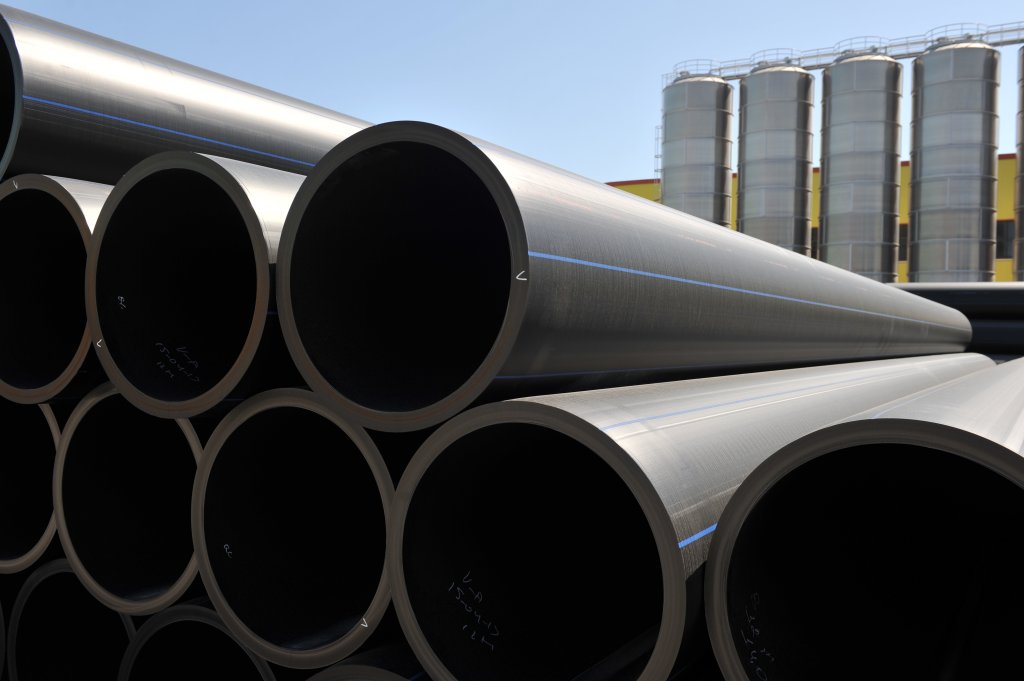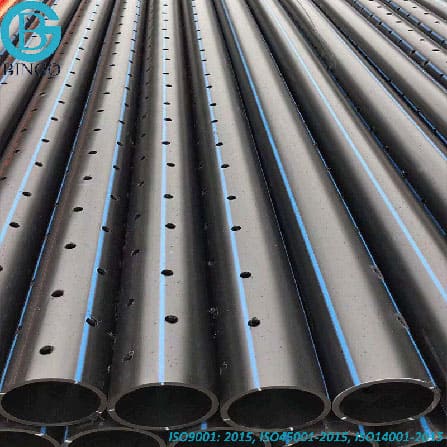How American Plastics HDPE Pipe for Oilfield Supports Energy Infrastructure
Wiki Article
A Comprehensive Overview to the Numerous Uses HDPE Pipe in Construction and Market
HDPE pipes have become a crucial element in modern building and construction and commercial applications. Their unique residential or commercial properties, such as resistance to rust and lightweight style, make them appropriate for a large range of usages. From water supply systems to agricultural irrigation, HDPE pipes offer remedies that boost performance and sustainability. Comprehending their diverse applications is vital for experts seeking to enhance infrastructure. What specific benefits do these pipelines give each industry?Water System and Distribution Systems
Water and circulation systems are vital components of city framework, commonly depending on high-density polyethylene (HDPE) pipelines for their durability and performance. These systems transport potable water from therapy facilities to customers, making certain availability and safety. HDPE pipelines are preferred for their resistance to rust, chemicals, and severe temperatures, which enhances their long life and decreases upkeep costs. In addition, their lightweight nature permits less complicated setup and transport, making them suitable for various city and rural applications.The versatility of HDPE pipelines enables them to be mounted in tight spaces and around barriers, minimizing the requirement for extensive excavation (custom hdpe pipe manufacturing Midland TX). Moreover, their smooth interior surface area reduces friction losses, enhancing water circulation prices. As cities remain to expand, the need for dependable water system systems raises, placing HDPE pipelines as a sustainable solution for modern infrastructure jobs. Their tested track document makes them a recommended selection amongst designers and urban planners alike
Wastewater Administration and Therapy
Efficient wastewater monitoring and therapy are important for preserving public health and wellness and ecological top quality. HDPE pipelines play an important role in this process because of their durability, resistance to corrosion, and capacity to withstand harsh chemicals. These pipelines are typically used in various applications, including sewer system, stormwater water drainage, and wastewater treatment centers. Their lightweight nature assists in much easier installation and transportation, reducing labor prices and time.In enhancement, HDPE pipes have a smooth interior surface area that minimizes friction loss, promoting reliable circulation rates. They are likewise much less vulnerable to leaks and failures contrasted to traditional materials, ensuring that impurities are contained efficiently. Their flexibility permits for adaptability in various dirt conditions, making them appropriate for varied environmental setups. As industries significantly focus on lasting practices, the usage of HDPE pipes in wastewater management systems straightens with objectives for lowering ecological influence and enhancing resource recovery.
Agricultural Irrigation Solutions
In farming setups, reliable watering options are vital for enhancing crop yields and taking care of water sources. HDPE (High-Density Polyethylene) pipelines play a crucial function in contemporary irrigation systems due to their resilience, flexibility, and resistance to corrosion. Their ability to withstand high pressures makes them perfect for both surface area and subsurface watering applications, making sure uniform water distribution throughout fields.Farmers can utilize HDPE pipelines in drip watering systems, which deliver water straight to plant roots, reducing wastage and advertising healthy growth. In addition, these pipes are lightweight and easy to mount, decreasing labor costs and installment time. Their long life-span and low maintenance demands even more enhance their appeal in farming practices.
In addition, HDPE pipes are eco-friendly, as they can be reused and do not leach hazardous chemicals right into the soil. This makes them a lasting choice for farmers aiming to adopt environmentally friendly farming techniques while making the most of performance.
Industrial Applications and Processes
Flexibility is a trademark of HDPE pipelines, making them important in various commercial applications and procedures. These pipes are commonly used in chemical handling industries because of their superb resistance to a wide variety of harsh substances. HDPE's lightweight nature, integrated with high tensile toughness, enables easy setup and long-lasting efficiency popular environments.In the oil and gas industry, HDPE pipelines play an important function in delivering hydrocarbons and gases, many thanks to their sturdiness and versatility - custom hdpe pipe manufacturing Midland TX. In addition, they are utilized in mining operations for the transportation of slurry and other products, where typical piping systems might fall short
Furthermore, HDPE pipes are increasingly made use of in making centers for water lines and wastewater monitoring. Their capacity to stand up to extreme temperatures and pressures makes them suitable for a selection of commercial processes. Overall, HDPE pipelines contribute greatly to performance and safety and security throughout varied industrial applications.
Stormwater Monitoring and Drain Systems
Stormwater monitoring and drain systems are vital components in city facilities, designed to take care of excess rainfall and minimize flooding risks. High-density polyethylene (HDPE) pipelines are progressively utilized in these systems as a result of their toughness, here flexibility, and resistance to deterioration. These pipes efficiently deliver stormwater away from inhabited locations, lessening surface overflow and preventing waterlogging.HDPE's light-weight nature promotes simpler installment, decreasing labor costs and building and construction time. Furthermore, its resistance to chemicals and ecological stress factors assurances durability and integrity in different environments. Along with conventional water drainage applications, HDPE pipelines are also employed in ingenious remedies such as green infrastructure, that includes rainfall yards and permeable pavements.

Regularly Asked Questions
Exactly How Does HDPE Pipeline Compare to PVC Pipe in Expense?
As a whole, HDPE pipeline often tends to be more costly than PVC pipeline as a result of its enhanced durability and versatility. Nonetheless, long-term cost considerations, such as maintenance and life expectancy, might prefer HDPE in specific applications.
What Is the Life-span of HDPE Pipeline Under Diverse Conditions?
HDPE pipes commonly have a lifespan of 50 to 100 years, relying on ecological problems, setup practices, and use. Factors such as temperature, dirt kind, and exposure to chemicals can significantly influence their resilience.Can HDPE Piping Be Recycled After Use?
Yes, HDPE pipelines can be recycled after usage. The reusing process entails thawing down the material, allowing it to be repurposed right into brand-new items, thus promoting sustainability and lowering environmental effect connected with plastic waste.Are There Any Specific Installation Difficulties With HDPE Pipes?
Installment difficulties with HDPE pipelines include proper jointing strategies, ensuring ample trench conditions, and taking care of thermal growth. Additionally, experienced labor is called for to manage specific equipment, which can make complex the setup process in different environments.
What Accreditations Should I Search For When Buying HDPE Pipelines?
When acquiring HDPE pipes, one should try to find accreditations such as ASTM, AASHTO, and ISO, which confirm high quality and compliance with sector requirements, assuring sturdiness and efficiency in various applications. - Texas hdpe pipe manufacturerReport this wiki page